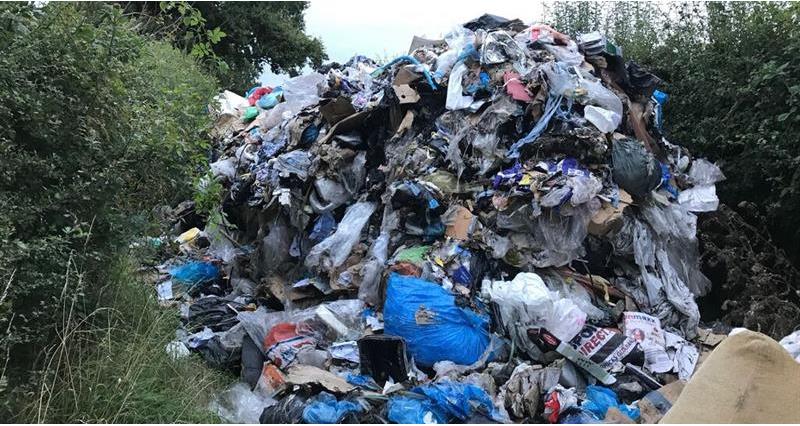Defra has announced a range of measures to crack down on fly-tipping, something that blights many rural communities and costs up to £392 million a year.
Immediate and longer-term actions
The announcement focuses on immediate and longer-term actions to reduce the problem, including:
- Households will no longer have to pay to get rid of DIY waste – the rules currently allow some local authorities to charge for DIY waste from households. This will now change meaning they can get rid of plasterboards, bricks and bath units.
- Call for evidence on the use of recycling centres' booking systems – there is some concern that the booking system brought in during the pandemic could be making it harder for people dispose of their waste.
- Council grants totalling £450,000 to be awarded to fund trial projects – the funding will allow councils to bid for 11 grants of between £25,000 and £50,000 to implement projects to tackle fly-tipping.
"It’s not only affecting farmers' efforts to produce food and care for the environment, but is also taking a huge toll emotionally, financially and impacting on mental health."
NFU Vice President David Exwood
Emotional and financial toll
NFU Vice President David Exwood said: "Fly-tipping continues to plague the lives of so many of us living and working in the countryside.
"Not just the odd bin bag and old kitchen appliances but nowadays it’s industrial-scale amounts of rubbish, such as builder’s rubble and hazardous materials.
"It’s not only affecting farmers' efforts to produce food and care for the environment, but is also taking a huge toll emotionally, financially and impacting on mental health."
Long-time call for action from the NFU
"We have been calling for urgent action for some time and welcome these new measures announced today," Mr Exwood continued.
"It will hopefully go some way in helping curb the issues of fly-tipping which are extremely costly and time-consuming to remove, are dangerous to human health and harmful to wildlife and livestock."
Digital waste tracking
Executive Director of the Environmental Services Association (ESA), Jacob Hayler, said: "In addition to helping individuals recycle their household waste materials at HWRCs, of particular importance is stopping this material from falling into the hands of organised waste criminals leading to larger scale fly-tipping, which is why the ESA also strongly supports digital waste tracking and reform of the licensing regime for carriers, brokers and dealers of waste material.
"This protects both the environment and legitimate recycling and waste operators."
Trialling innovative new projects
"The funding that we have announced for local authorities today will help them trial innovative new projects to put a stop to fly tipping," said Environment Minister Jo Churchill. "We will learn from the successes – and replicate them."
Advice for farmers
Tackling fly-tipping is a key issue for us and something that many farmers face. We have a range of advice on how to best deal with it on NFUonline.
